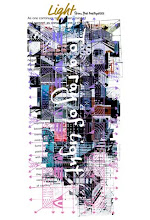The "self" or ego is thought and mind. The self cannot become no-minded.
In order not to be swept away by thoughts, it is necessary to know about the self.
There are two types of thoughts. One is thoughts that spontaneously pop up unconsciously. The other is thoughts that are made intentionally, such as planning. The former includes anxiety, anger, regret, inferiority, desire, etc., coming from past memories or predictions for the future, and there are thoughts that disappear immediately and thoughts that strongly occupy the brain and stay. The latter is used when necessary.
Most thoughts are re-screenings of past memories.
Being born as a human means that everyone has an ego. Unconscious thoughts are triggered by past memories. Behind thoughts, there are words and actions, which form individuality and character. If the past is full of failures, the feeling of inferiority becomes strong, confidence is lost, and proactivity is lost. Conversely, if there are many successes, it leads to a positive and proactive mindset. For these reasons, humans tend to repeat the same actions and encounter the same problems.
The self called "I" repeats past memories → spontaneous thoughts unconsciously → emotions → words and actions → personality → life experience → past memories. The end of this life cycle is when becoming no-minded and existing as consciousness is habitual.
When asked "Who are you?", the answer is, my name is ◯◯◯◯, I am a Japanese woman, I work in sales, I am a university graduate, I have patience, I am quick to anger, I laugh a lot, I am slow on my feet, I used to play tennis, my hobby is mountain climbing, etc. These are descriptions of my past memories and experiences, explaining the self. This is not the real me, it is a thought, not the fundamental form of human consciousness.






0 コメント